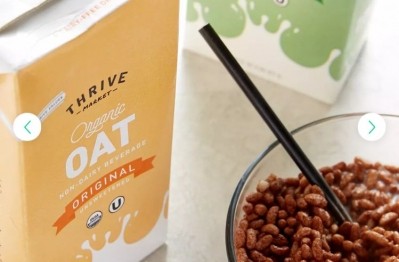Whole Foods survey insights: 'Millennials don’t settle for just any food in their shopping carts'

The national online survey was independently conducted by YouGov and surveyed 1,006 adults between the ages of 22 and 37 in the US. According to the survey, nearly 70% of millennials spent more on food than on travel in the past year and a majority of millennials surveyed considered themselves "adventurous" eaters and more than 60% make an effort to cook new dishes.
Transparency and responsible sourcing weighs heavily on millennials' minds
The most prominent trend that arose from the survey was millennials' prioritization of making "informed purchasing decisions." According to Whole Foods, a majority of millennials want to know where their food comes from and how it is sourced. More than 65% of millennials surveyed said that transparency in food sourcing is important to them, particularly for fresh meat and seafood. More than half of millennials will pay more for products that have adopted animal welfare standards and prefer to buy those that are responsibly sourced.
Food labeling and ingredient transparency are also key factors in millennials’ choices, according to the survey. Compared to five years ago, nearly 70% of millennials read labels more closely and more than 60% are more concerned about additives and growth hormones. In addition, half of millennials buy more organic products than they did five years ago, the survey found.
“Millennials don’t settle for just any food in their shopping carts, and neither do we. The stories of how food is produced and grown matter to them – and to us. That is why we ban more than a hundred ingredients in the food we sell," said Sonya Gafsi Oblisk, Whole Foods Market’s chief marketing officer.
Whole Foods' list of "unacceptable food ingredients for food" goes beyond USDA requirements to include prohibiting all antibiotics and added hormones for all its meats and only selling sustainable, wild-caught or Responsibly Farmed seafood.
More than 60% of millennial respondents are aware of the implications their food choices have on the environment and about half actively seek out food and beverages made with less packaging and plastic.
Specialty diets?
While millennials' definition of health and wellness has expanded to include additional factors such as product having to be environmentally friendly and responsibly sourced, "eating healthy" for personal wellbeing is still a top priority for many consumers with plant-based and unprocessed foods becoming more popular, with 63% of millennials trying to incorporate them into their diets.
Outside of this, nearly half of millennials said they have tried a specialty diet such as going keto or dairy-free in the past year and 52% restrict ingredients due to health reasons. The survey also found that maintaining an alternative diet is often inconvenient so respondents said they were willing to pay more for convenient, ready-made meals that are healthy and high quality.

















